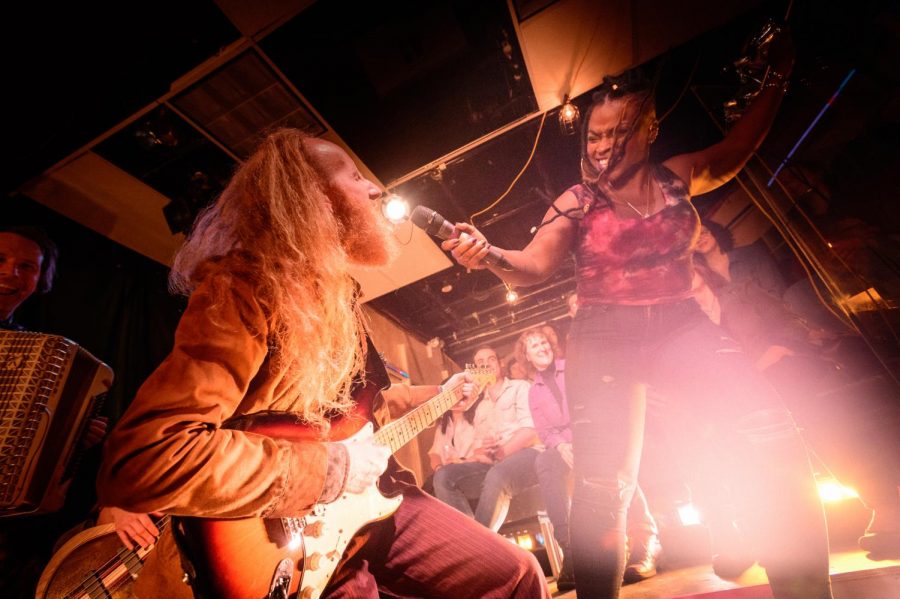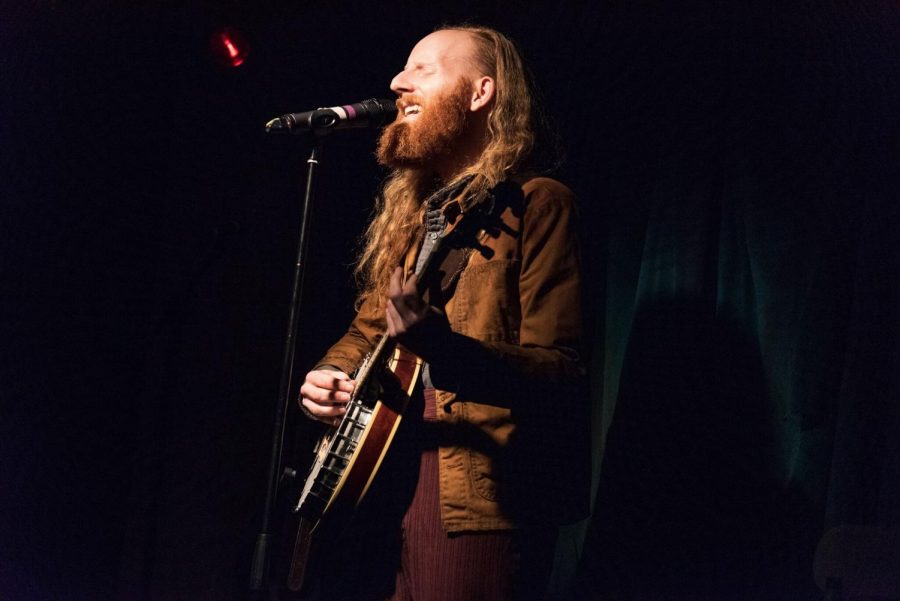Review: At Ars Nova, ‘Rags Parkland’ Takes Us To Our Future
(COURTESY OF BEN ARONS PHOTOGRAPHY)
Andrew R. Butler as Rags Parkland in “Rags Parkland Sings the Songs of the Future,” now playing at Ars Nova.
November 7, 2018
Have you, son or daughter of Cain, ever packed your history up in a bag and thrown it over your shoulder? Have you heard the sound of a people’s history come together, the sinews of strife and solitude, love and loss weave into memory? Or have you sold your soul to the devil and whistled the melodies of human life, cracked and broken, until judgement came?
Maybe you’ve listened to Bob Dylan or Woody Guthrie or Robert Johnson. Rags Parkland has, and he’ll tell you the story of your future.
Ars Nova’s first world premiere of the season brings us to the dusty, Delphian crossroads of life and history; it knocks us on our knees, the sun long set behind us, and begs us, bathed in twilight, to witness the very making of story, of song and experience.
Some people thought Robert Johnson sold his soul to the devil, that the delta blues were forged once hell came knocking and said it was time to go. Who other than the devil, they thought, could make a man cry quite like that? The dead heat of Mississippi certainly could, and life in an oppressive American south is what, in desperate truth, compelled Johnson to pick up his guitar and tell an oral history of hell on earth.
At least 300 years in the future, Rags Parkland wants to do the same thing. Once shipped to the underground work camps of colonial Mars, shackled with convicts and second-class, synthetic humans who’ve lived only through black-market exchanges of organs and robot parts, Rags Parkland now returns to earth to tell a subterranean history of human life spent under another’s foot, of the blood and resilience that built life on Mars, enshrined only in the melodies of his harmonica and beat-up guitar.

Andrew Butler (Rags Parkland) and Stacey Sargeant (Beaux Weathers) in “Rags Parkland Sings the Songs of the Future.”
“Rags Parkland Sings the Songs of the Future” is a lesson, a study, really, in the very making of folk tradition, of oral history told through song. In form and concept, innovation is too weak a term to describe this piece of theater. Revolutionary, maybe. Conceived by Andrew Butler over an eight-year-long cooperation with Ars Nova and directed by Jordan Fein, “Rags Parkland” is necessary viewing for anyone willing to travel to the gritty, creative battlefront of theatrical story.
This is a sci-fi show, built by an endless, electrifying imagination of life in the future, of living after judgement came, after society fell and our common home ceased to cradle us all. But it’s not a scientific show, removed from the shaking, uneven breath of vulnerable humanity. Rags Parkland (Andrew Butler) takes the stage in beat up boots and an old suede jacket, unnerved to the performance he’s about to give, and tells a story of some future unsettlingly, uncomfortably akin to our past. “Cain’s blood runs in our veins,” he reminds us.
He transports the audience to a cramped, shoddily-built and illegal music club on the surface of Mars, a meeting place where members of the subterranean work camps — human, humanoid or machine-made alike — can come together to sing the songs of their struggle. Parkland’s band, “The Future,” led by the rapturous, earth-quaking voice of his partner, Beaux Weathers (Stacey Sargeant), shakes this club with the very vibrations of resistance, with the weight of some solid, enduring stake thrust into the ground.
But with every earthly thump of Parkland’s apocalyptic folk rock, our very presence in this place becomes more dangerous. It’s not safe here; outside, a world not unlike our own, ready to destroy the sound of this resistance, strengthens. It’s getting closer. Soon they’ll break in the windows. What price will we pay to tell our story, The Future asks? When the end comes, when the sirens wail and the light of judgement blinds our eyes, will we be singing?










